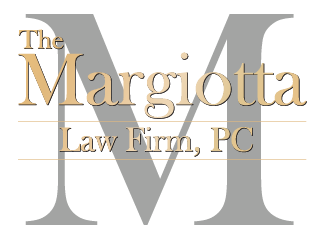What is the Role of a Corporation and Business Attorney?
The role of a corporation and business attorneys is to perform of commercial transactions, ensuring all legal aspects of the transaction are addressed, advising businesses and corporations on their legal rights and duties, including the duties and responsibilities of corporate officers. In order to do this, they must have a vast knowledge of aspects of laws affecting businesses and corporations. Having a Masters Degree in Business Administration is a major requirement to give effective comprehensive business and corporate advise. Knowledge of accounting/finance, intellectual property rights, licensing, zoning laws, and the laws specific to the businesses and corporations is also important.
Corporate Attorneys are less opponents than facilitators. There are rarely wronged parties, underdogs, or inequities in the financial means of the participants. Corporate lawyers structure those transactions, draft documents, review agreements, negotiate deals, and attend meetings. The key for a corporate and business attorney is to be a trial attorney who engages all transactions and functions with the knowledge of what happens if the parties end up in litigation. Corporate and business attorneys who are not trial attorneys do not possess the same degree of scrutiny as trial attorneys do in transactions.
The core competence skills required of corporate and business lawyers is 1) Analytical ability; 2) Attention to the needs of the client and the transaction or litigation; 3) Logical reasoning; 4) Persuasiveness; 5) Sound business and legal judgment and 6) Ability to draft legal documents that will survive any legal challenge.
Major Difference Between Corporate and Business Law
A significant difference between the two types of laws is that corporate law tends to provide guidelines used in the purchase and selling of items in the market. Corporate law affects businesses significantly. We have had to many businesses involved in legal tussles that revolve around the breach of crucial elements of corporate law. On the other hand, business laws employ a broader perspective of legal influence in business. Business law lawyers cover areas such as employment law, contracts and even taxes and finance. It is more common than corporate law.
Regulation of Business and Corporate Law
The federal government and the states play different roles in regulation of business law. The federal government controls the purchase of stocks, and workplace security and safety while the state governments make additional laws depending on the necessity.
The Uniform Commercial Unit is the body that designs rules and regulations used to govern corporate law. The UCU has a model of laws used to control the purchase and sale of goods in the United States. States use UCU as a benchmark when designing additional laws that govern trade. Since most states have significantly modified the UCU rules, it is prudent you get an attorney who is well versed with the corporate laws of a particular state.
With a clear understanding of business and corporate law, you can separate each category depending on your needs. It also gives you an opportunity to identify a suitable corporate attorney.
Under our business law practice area, we provide our clients with expert legal guidance and counsel for the following:
- Business formation and operations
- Franchise agreements
- Partnerships
- Incorporation
- Limited liability companies (LLCs)
- Operating agreements
- Shareholder agreements
- Contracts with employees and vendors
- Shareholder disputes
- Licensing agreements
- Non-compete agreements
- Non-disclosure contracts
- Sale and purchase of stock and assets
- Shareholder rights and agreements
- Joint ventures
- Licensing
- Regulatory compliance
- Purchase and sale of businesses and assets
- Dissolution
- Dispute resolution
- Contractual disputes
- Corporate reorganizations
- Obtain permits and approvals from local, state, and federal governments
- Land use and Zoning
- Promissory notes, security agreements and applicable UCC filings
- Employment, severance and restrictive covenant agreements
- Corporate Governance
- Corporate Real Estate purchases
- Commercial Leases
- Occupational Licensing
Our firm represents businesses and corporations in litigation which makes this firm better suited to handle the requirements of businesses and corporations. Protecting the business or corporation during transactions, contracts, agreements and changes in the structure of the business/corporation relies on trial attorney having the knowledge of what will and what will not survive litigation.










